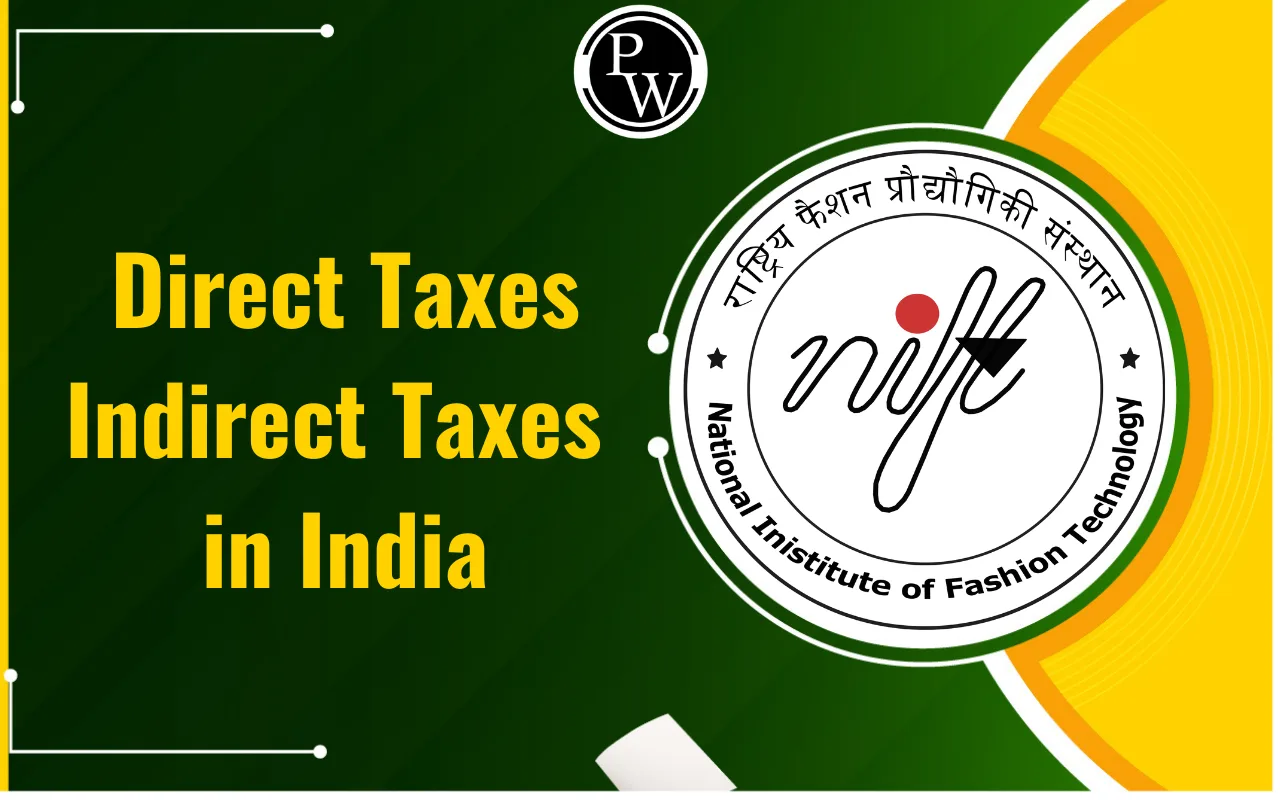
How To Become a Tax Accountant?: If you love working with numbers and enjoy problem-solving, a career in finance or accounting could be a great fit for you. This field offers many different paths, so it's important to choose one that aligns with your interests. For instance, if you're also drawn to the business world, becoming a tax accountant might be the perfect choice. Understanding what this role involves and what it takes to become one can help you decide if it’s the right path for you.
Here, you'll learn who a tax accountant is, what they do, the steps to start a career in this field, the key skills required, the job outlook, and the average salary you can expect.
What Is a Tax Accountant?
A tax accountant is a financial professional who helps individuals and businesses prepare and file their tax returns while ensuring full compliance with all federal, state, and local tax regulations. These professionals do more than just crunch numbers; they advise clients on tax-saving strategies, assist during audits, and keep up with ever-changing tax laws.
Unlike general accountants, tax accountants specialize in taxation and help clients reduce their liabilities through legal and ethical means. They can work independently, with accounting firms, or in-house with corporations and government agencies.
Tax Accountant Job Description
While the exact tasks may differ depending on the job or client, a tax accountant job typically handles a variety of key responsibilities. These include:
-
Working closely with other accountants and finance experts to solve financial issues.
-
Creating detailed tax reports for clients or organizations as needed.
-
Making sure clients follow all federal, state, and local tax regulations.
-
Breaking down complex tax and financial information in a simple way for clients to understand.
-
Offering solutions for problems related to bookkeeping or tax filing.
-
Staying updated on any changes in tax laws.
-
Meeting with clients regularly throughout the year to get them ready for tax season.
-
Accurately preparing and filing tax returns on behalf of clients.
-
Identifying and applying tax deductions or rebates that can help clients save money
These responsibilities make the tax accountant roles both challenging and highly valued.
Read More - What Is a Tax Consultant? Meaning, Types, Roles, Career Growth & Salary
Types of Tax Accountants
Tax accountants can be grouped based on the type of work they do or the clients they handle. Here are the main types of tax accountants:
1. CPA Tax Accountants
These are Certified Public Accountants (CPAs) who specialize in tax services. They help individuals and businesses with tax planning, filing, and compliance.
2. Forensic Tax Accountants
They investigate financial records and tax returns, usually for legal cases or fraud detection.
3. Management Tax Accountants
These accountants handle both tax and financial matters for companies, helping them manage budgets, expenses, and taxes efficiently.
4. Personal Tax Accountants
They focus on helping individuals file their income tax returns and plan for future tax savings.
5. Government Tax Accountants
These professionals work for government agencies at the federal, state, or local level, ensuring tax laws are followed and enforced.
6. Small Business Tax Accountants
They work with small or privately-owned businesses, helping them handle tax filings, deductions, and compliance issues.
How to Be Tax Accountant?
Follow this step-by-step guide to start your journey toward becoming a successful tax accountant:
1. Earn the Right Degree
Start with a bachelor’s degree in accounting, finance, economics, or taxation. A solid foundation is crucial because this is where you’ll learn the basics of financial principles, tax laws, and regulatory frameworks. Many universities now offer specialized programs in taxation that make the journey more streamlined.
If you're aiming for top roles or niche areas, consider furthering your education with a master’s degree in tax or accounting. It gives you an edge and allows specialization.
2. Get Certified
Most employers prefer or require tax accountants to become Certified Public Accountants (CPAs). Becoming a CPA involves passing the Uniform CPA Examination and meeting state-specific experience requirements. Other valuable certifications include Enrolled Agent (EA), Chartered Tax Professional (CTP), or the CMA (Certified Management Accountant).
These certifications enhance credibility, open doors to better job offers, and boost your tax accountant salary significantly.
3. Build Experience
Apply for internships or entry-level tax accountant jobs while studying or right after graduation. Experience in bookkeeping, financial analysis, or assisting with tax prep services will help build the real-world skills necessary for long-term success.
With time, your responsibilities grow, from preparing basic returns to managing full portfolios and strategizing for large firms.
4. Sharpen Your Skills
To thrive as a tax accountant, these skills are essential:
-
Solid accounting knowledge
-
Sharp attention to detail
-
Teamwork and collaboration
-
Strong communication skills
-
Good interpersonal skills
-
Up-to-date tax knowledge
-
Mathematical ability
-
Problem-solving mindset
-
Tech-savviness
-
Time management
-
Understanding of asset management
-
Business and finance awareness
Soft skills, especially communication and trust-building, are equally vital. You’ll need to explain complex financial topics to non-experts, making them feel confident and informed.
Read More - All You Need to Know About Tax Credits in India
5. Apply Strategically
Customize your resume for each tax accountant job you apply to. Highlight relevant coursework, certifications, internships, and software knowledge. Use your cover letter to showcase how you’ve applied tax accounting concepts in real scenarios.
Tax Accountant Salary
The average yearly salary for a tax accountant job in the U.S. is around $66,991. However, this number can change depending on several factors. Your education level, work experience, location, professional qualifications, and the company you work for can all influence how much you earn as a tax accountant.
Taxation Accounting Examples
The accounting approach known as tax accounting is used for all assessees, including partnerships, corporations, individuals, and other entities. It is a branch of accounting that deals with tax payments and return preparation. Here is Taxation Accounting Examples given below:
1. Depreciation: Depreciation is the decrease in an asset's value brought on by use over time. It is used by businesses to lower the cost of capital assets. Tax accountants calculate depreciation using a number of techniques, including the write down value approach and the straight line method. One of the permitted deductions for firms is depreciation, which is displayed on the profit and loss account's negative side.
2. Valuation of Inventory: Companies that hold inventory must determine the cost of products sold. Inventory value displays the company's entire sales along with its profit margin. To determine the cost of products sold, entities use a selection of techniques, including the First In First Out (FIFO) and Last In First Out (LIFO) methodologies.
3. Tax Returns: After determining the company's overall tax burden, tax accountants quickly file the returns. Depending on their convenience, entities may file their returns quarterly, semi-annually, or annually. Income tax returns, tax deducted at the source, tax collected at the source, and other necessary filings are all considered returns.
Future Outlook for the Tax Accountant Job
The U.S. Bureau of Labor Statistics predicts a 7% growth in accounting and auditing jobs through 2030. That's consistent with the average for all occupations, but for tax professionals, the demand is expected to rise due to:
-
Increasing complexity in tax codes
-
Global business expansion
-
Digital transformation in finance
This is a future-proof career. As long as people and businesses pay taxes, the world will always need skilled tax accountants.
Upgrade Career with Certificate Program in Finance, Tax, and Accounting
The PW Certificate Program in Finance, Tax, and Accounting is designed to equip you with the right knowledge, tools, and hands-on experience to thrive in the accounting world.
Whether you’re a student or a working professional looking to pivot, the PW Certificate Program in Finance, Tax, and Accounting offers the right balance of theory and practice. Enroll now and accelerate your journey toward becoming a skilled, certified, and in-demand tax accountant.
FAQ
What is the main role of a tax accountant?
What is the average tax accountant salary?
Is certification necessary to become a tax accountant?
What degree should I pursue to be a tax accountant?
Where can I get practical training in tax and accounting?










